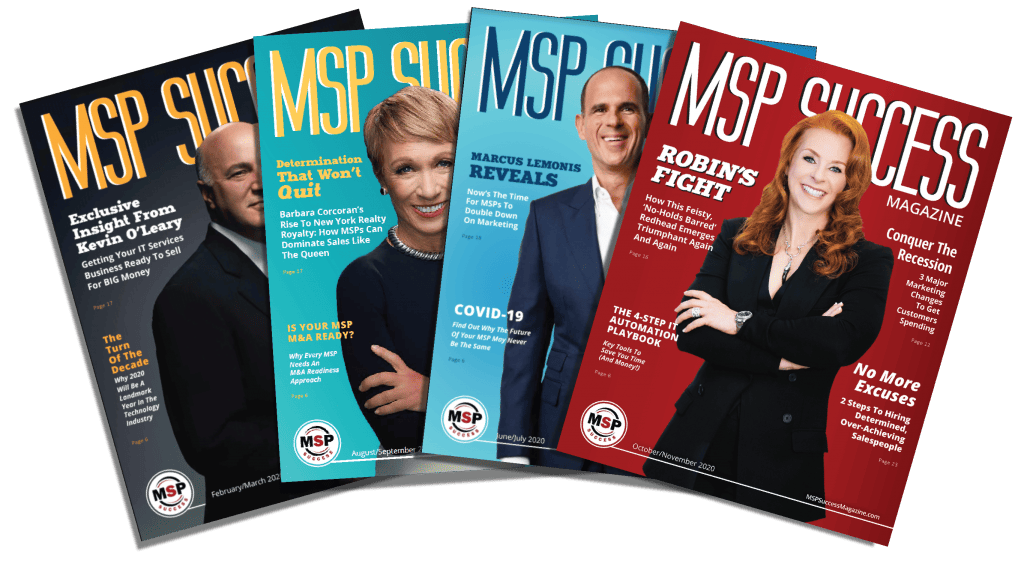If you’re reading this magazine, I know you are ambitious, hardworking, smart, and constantly looking for the “slight edge” to grow sales, clients, and monthly recurring revenue. You work tirelessly on your business. You are the first one in the door in the morning and the last one to leave at night; you work on weekends, through vacations, and over holidays. You’re also the one with all the risk and responsibility, the last one getting paid if things go south.
And that’s the problem: There’s only one you.
No matter how disciplined you are with your time, there are only so many hours in a day, and you can only relegate yourself to a certain level of success. If you want to grow, you must start hiring right-fit, smart, capable people who can get the job done, or you will end up being a “tech with helpers” instead of a true business owner. While finding good techs is hard, one of the areas you probably struggle with the most is finding capable sales professionals who have the same passion, commitment, common sense, and work ethic as you.
Candidly, finding and recruiting great salespeople is one of my biggest challenges too. There are a lot of sales imposters out there you have to weed through, and even more “sales preventers” who claim to be salespeople who you have to be careful not to employ. You are dealing with humans, so even if they start out strong, they’re vulnerable to personal issues, emotional baggage, loss of motivation, etc. If you think finding good people is hard, then you’ll soon see that finding good salespeople is brutal.
Here’s an inconvenient truth: All successful MSPs that are experiencing profitable growth have one thing in common: a productive, well-staffed, growing sales department. If you want to grow your organization, it is a necessary “evil” you must invest in. Most MSPs are far too heavily staffed on operations and tech without salespeople, similar to a car with all engine and no gas pedal. For high-growth firms, you’ll routinely see 20%–40% of their staff dedicated to sales and selling.
But adding more sales “bodies” is not the absolute answer either. Your sales department must be ruthlessly managed for profitability and performance. Half of the job is finding the right person, someone who can sell and will sell. If you’re not willing to enforce productivity and manage activities, even for “good” people, your sales team will end up being a giant time and money suck on your organization.
Larry Schulze, founder of Taylor Business Group (now retired), had a great presentation about building a profitable IT services business. In his presentation, he explained how your techs must have a 75% utilization rate in order for you to make a good profit, which means they are working on billable client projects 30 hours in a 40-hour week, reserving 10 hours a week for everything else (documentation, traveling to a client’s office, staff meetings, etc.). If you ignore this metric — or fail to track it, enforce it, and continuously strive for it — you’ll end up being barely profitable or even losing money. He often told the story about a client who discovered that one of his top guys, who he was paying a premium salary to, would routinely go home during the day to mow the lawn, work around the house, or take a nap when he was supposed to be on-site working at a client’s office, but the office manager of the client was a friend and would cover for him.
This is not uncommon, and to Schulze’s point, you must view all of your employees’ hours as inventory that you purchased. If they screw around, come in late, go home early, or use any of those hours for playing games or running personal errands, they are stealing paid-for inventory from you. While I don’t think any CEO would begrudge a few minutes a day on personal activities, spending hours a day browsing social media, shopping, gambling, and running personal errands is a horrendous violation of professional ethics, and so is going home early and coming in late. Just try not paying an employee for all the hours they worked and see how that goes over. You’ll get a not-so-friendly visit from the U.S. Department of Labor.
Now, Let’s Consider That Same Concept For A Salesperson
The loss is not just limited to the base salary you are giving them. The real loss is in opportunities: sales that you should have closed but didn’t and leads that you paid to produce that should have been followed up with and converted to paying clients but were left abandoned, ignored, and up for competitors to steal. You also must consider bigger-ticket, more complete solutions that should have been sold to the client but weren’t even mentioned or presented, costing not only lost sales but also potentially harming the client because they weren’t sold everything they need. When you add all of this up, the losses are staggering. So how do you deal with this?
The First And Most Important Step Is To Stop Accepting Less Than You Should From Your Salespeople
At a minimum, take a hard, pragmatic look at what you’re getting from your salespeople as a whole and individually for what you’re investing in both time and money. Most MSPs and business owners in general accept and tolerate horrible productivity and low performance, excusing it away because the salesperson is a nice guy and is “trying.” This is often because they can’t find anyone better because they don’t want to do the tough job of managing and enforcing quotas and systems, and they don’t want to deal with firing and starting over, if necessary.
If you won’t do this, you’ll never have a high-performing sales team. Not only will the duds gather, dragging you down with them, but the high achievers also won’t work for you because of your lazy, soft approach that doesn’t allow them to make the money they can get somewhere else.
Second, Manage Using Leading Productivity Measurements
How many prospects do your salespeople need to talk to in order to secure a new opportunity? Which prospects specifically should they be calling on? How many opportunities will turn into a paying client? What does the average client spend with you, and are you continually increasing that number? Are your salespeople following up, presenting, and closing as you’d like them to, or are they winging it, cherry-picking only the easy opportunities, ignoring the “warm” leads that need a little work, and sloppily presenting the cheapest, easiest-to-sell products and services?
As Pearson’s law states, anything measured improves, and anything measured and reported back accelerates the rate of improvement. If you want your sales team to perform, they have to track and report upon activities, and you, as a manager, must inspect those activities to ensure they are being done to the quality and quantity you want. Are some salespeople self-managed? Yes, but they are rare, and even those who are highly motivated benefit from good management.
Want a FREE sales management checklist of the metrics you need to measure and manage in order to maximize the performance of your sales team? Go online and get it now at MSPSuccessMagazine.com/saleschecklist















